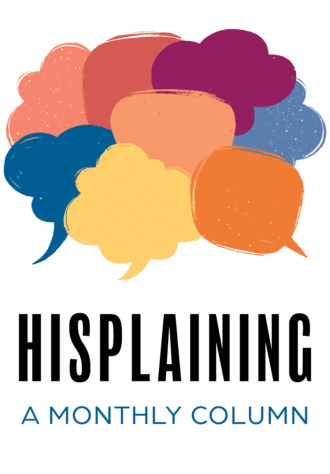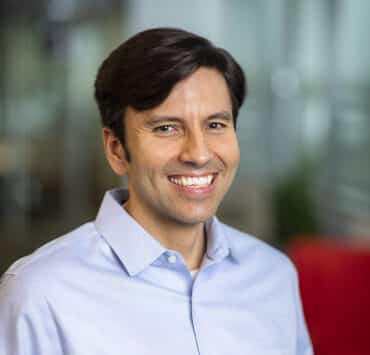|
Getting your Trinity Audio player ready...
|
There is a nautical compass on display in the office of Andrés Acebo, interim chief of staff and secretary to the board of trustees as well as assistant university counsel at New Jersey City University (NJCU). The compass was used by his father, a native of Pinar del Río, Cuba, during the harrowing journey Acebo’s father took on a small craft in pursuit of freedom nearly sixty years ago
Following his rescue by the American Coast Guard, Acebo’s father was assisted by Catholic Charities as well as the US government. Eventually, he met Acebo’s mother, born in Manzanillo, Cuba, who had also fled Cuba with her family to avoid political persecution. The two would likely never have met in Cuba, as they were from completely separate parts of the island, but they were brought together in the United States.
The compass that Acebo’s father carried with him throughout his journey and during his years in the US has motivated Acebo his whole life. On a relentless mission to prove just how far the son of immigrants could make it, Acebo—the son of a waiter and a secretary—went on to attend both Brown University and Rutgers Law School and made partner incredibly early in his career.
Acebo seemed to have the world at his fingertips. There was no ceiling to the money he could make or reputation he could build.
But now, as a “recovered overachiever,” Acebo can tell that that wasn’t the path for him. The compass hadn’t steered him in the wrong direction; he just hadn’t been reading it right.
“Everything in my career had become about what could come next,” the lawyer explains. “It was all about trying to see how much distance I could create from where my family and I started. I found professional success, but it wasn’t giving me true joy, I hadn’t found personal fulfillment.”
Acebo knows his story is a familiar one: that of child who grew up with a self-imposed burden of “ultimate success” and a burning desire to make his parents proud after all the traumatic circumstances they went through to make a better life for themselves and their family.
A Calling and a Mission
Today, Acebo has found joy in reconnecting with his old stomping grounds of Union City and West New York, New Jersey, and the surrounding area. The lawyer is now leveraging his extensive experience representing municipalities, county governments, public school districts, county colleges, and independent public authorities on behalf of NJCU, an institution that has acted as a launchpad for first-generation minority and Hispanic students for decades.
“I’m now working in service of a public anchor institution—a federally recognized, minority-serving, and Hispanic-serving university in the county that raised me and shaped me,” Acebo explains. “The part that I love so much about being a lawyer is being an advocate, a problem-solver, and a strategic partner. I love preparing and navigating legal arguments to protect and defend individual interests and positions.
“But the professional experiences that I most rejoiced in were the quiet, privileged ones,” he continues, “the ones where I found myself in rooms with people that had to make very difficult and important decisions and who would turn to me to help guide them through the strategy and legal ramifications of their options.”
Many of those decision-makers, Acebo says, were leading communities like his hometown. Those individuals needed “more than just an understanding of arcane legal procedures or difficult-to-understand judicial precedents,” the lawyer says. “They needed perspective and independent judgment. Those experiences led me to seize the opportunity to serve in my current role. I get to use my education and my experiences every day to help drive NJCU’s mission of not just changing the course of individual lives but building communities that are empowered to break through systemic and structural barriers to prosperity.”
The lawyer’s off-the-clock activities include service for nonprofits working to promote diversity, equity, and inclusion. He currently serves the Hispanic National Bar Association (HNBA) as a regional deputy president and as the chair on the HNBA’s special committee on Cuba.
The HNBA has played a pivotal role in Acebo’s career, and he credits much of his professional accomplishments to the organization and its leadership—individuals that look at the statistics that reveal less than 4 percent of all lawyers in the US to be of Hispanic or Latino descent and are committed to moving the needle.
He personally credits individuals like HNBA’s immediate past president Irene Oria, who (to his mind) personifies the very best of the organization’s commitment to championing its community. “She has generously mentored me and given me the great gift of believing in me from a thousand miles away,” Acebo notes. “She has given me a platform to use the power of our shared background and personal narrative to advocate for and shine a light on the sacrifices our families endured so that their promise could be realized through their children.”
He also serves as a board member for the Cuban American Alliance for Leadership and Education (CAALE), which recently won the Nonprofit of the Year Award from the Statewide Hispanic Chamber of Commerce of New Jersey. CAALE is renowned for its incredible efforts to financially support college students, promote the leadership development of first-generation students, and facilitate cultural educational experiences designed to enable students to become strong, valuable leaders in society.
Even further, Acebo recently joined the board of the North Hudson Community Action Foundation, which he served as legal counsel while in private practice and helped support during the organization’s heroic response to the COVID-19 pandemic.
These are all byproducts of Acebo’s passion for making the community that raised him a better place for minorities and Latinx people.
Crisis and Commitment
Looking back, Acebo points to the COVID-19 pandemic as a turning point and a motivator for his transition to NJCU. The idea of standing shoulder-to-shoulder with the constituencies he both felt a part of and could support throughout that crisis, of leaning wholeheartedly into the organization’s mission—Acebo realized that what he was doing and what he wanted to do were two different things, and he needed to commit firmly to the latter.
The decision to forge a new path for himself would be made all the more clear when Acebo lost his cousin to COVID-19. His youngest son was also hospitalized for nearly three weeks right at the beginning of the national shutdown. New Jersey City University—which had been a signpost of success for his wife, his mother-in law, and his grandmother-in-law—was the opportunity the lawyer had been looking for to bring his entire self and all his passions to his work.
As of June 2021, Acebo is only five months into the job, but you can hear his happiness in his voice. His day job is now completely aligned with the countless hours he’s dedicated to his community in his spare time. Recently, he got to shake the hand of an NJCU graduate, a childhood classmate whose own journey had taken several twists and turns but who had finally found success.
Today, Acebo knows that the success he craved on behalf of his parents was leading him down a path he was not charting for himself. His ship is now righted, and he knows where he belongs.


